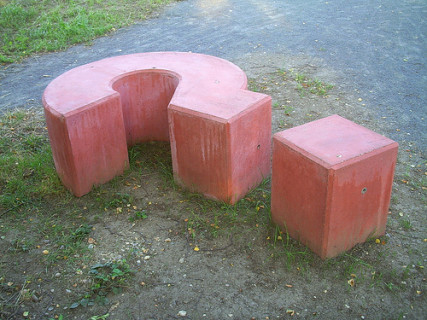Several weeks ago, I was helping my parents move their new refrigerator into their house. I was wearing a pair of work slacks and, as we shifted the fridge from one angle to another, I heard the unmistakable sound of my slacks tearing. Fortunately, the tear occurred on a seam and both of my parents are talented with sewing machines. As my mom was sewing the seam, she said, “These pants may be the most poorly constructed pants I have ever seen…” I responded, “Well, they have lasted me about six years so far and, over the past six months, I have worn them five days a week for work.” Without skipping a beat, my mom then said, “These are some of the best constructed pants I have ever seen.”

This is one example of how a quick shift in perspective can easily lead to a major shift in opinion or even belief. Several years ago, I expressed one of my more progressive views on one particular social issue (you can fill in the blank with whichever you decide is appropriate) with some family members. For my part, it was a major side step for what my family has typically taught for as long as I can remember. Almost a year later, one of them asked me if I ever wondered how she felt about my view. Simply put — I never did (or do) wonder how others feel about my views because they are my views. And I stated as much in this conversation. She responded, “Well, I prayed to God for six weeks, asking if there was any way that I could possibly be wrong, and he told me that I could not be wrong.”
How do you argue with someone who KNOWS that s/he is right because God told her/him that s/he could not possibly be wrong?!? You cannot. And, in reality, I would not want to. Most often, when an argument begins, the conversation ends. All you really can do is hope for a shift in perception.
While I cannot control another person’s beliefs, opinions, or even perceptions, I do have the power to constantly question my beliefs, opinions, and perceptions. The challenge, then, is for every person (no matter their beliefs or faith identity) is to ask difficult questions and, further, prepare for potentially difficult answers.










Well put, Kyle, for perspective is , for me, the actual realm of what is true, for me. I am reminded of your excellent post just before Christmas about the difference between a high Christology, Jesus as divine, and a lower Christology, Jesus as a human. Two different points of view, both very common and both traditions. How do we make sense of this itinerant mystic healer who wanted to live in a world where the poor did not suffer so much from the oppression at the hands of the well off few under Roman imperial colonialism. How do we give meaning to his life, torture, and assassination? Both explanations are worthy of consideration, and give good meaning. We need to make it clear, from the first, which paradigm we are using. If we follow the low Christology path, we tend to assume that there is not a dualistic reality, one empirical, another spiritual. That has great epistemological implications: how can we say we ‘know’ something, what criteria are we using? That would suggest the major validity of scientific methods. If, on the other hand, we accept the higher Christology, that Jesus was (is?) more divine than other humans, more “spiritual”, then we have two worlds of differing natures, and complications with our epistemology: what are our criteria of knowledge and truth. Many problems here which have, and can, not be solved even after 4000 years of argument. We also tend to assume that Jesus was very different from us, accept some special mission we dignify as being for our benefit or salvation. The first paradigm accents moral action to improve our here and now life in this world. The second – that Jesus is divine – tends to lead us into being concerned not with this world but with our position in some after life world. The first sees God as here, in the world, often even in us, and the second as God being outside us and this physical world. The first is interested in preserving the goodness of the harmony of creation and its ecology (family like relations) and the second is interested in the physical world only as a tool we can use to get to heaven.
Both have a very different view of God and the structure of the universe. The low Christology one seems to be surviving the restructuring of what we know from the enlightenment. The high one is in a very feverish defensive mode trying to recapitulate the doctrines and cosmology of the old view, with little success – they come up with new images, such as creationism, which turn on the same arguments that we reject that had been used to try to justify the old cosmology. Interesting and at times beautiful and suggestive, but ultimately not very productive of a moral life.
Do I believe in a God of Justice and mercy and equality, or do I believe that God is the one who has to save me, who does so by having us kill his son? I simply have too much trouble following any one or thing who is bloodthirsty, and would rather follow the example of Jesus, submitting to the crucifixion of concentrating on bringing about a just society where the poor are dignified, foregoing the possibility that the blood thirsty being will save me if I concentrate on my own salvation.